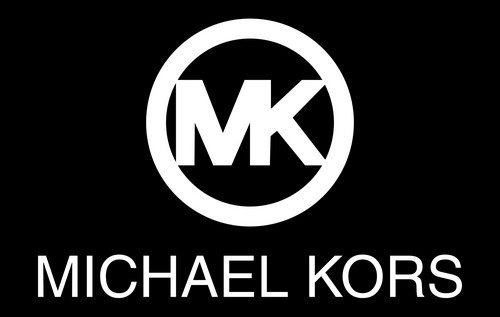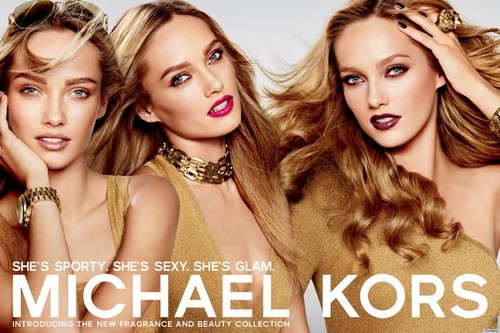The Marketing mix of Michael Kors analyses the 4Ps of Michael Kors, which includes the Product, Price, Place, and Promotion of Michael Kors. Michael Kors Holdings Limited is known by the name Michael Kors. It is associated with the Lifestyle and Retail industry and deals in apparel and accessories. It is a public limited company of American origin founded in 1981 by its founder, Michael Kors, a well-known designer. The brand has positioned itself as a fashionable one. It faces competition in the consumer market from the following-
- Coach
- Kate Spade
- Ralph Lauren
- Inditex
- Kering
- Tory Burch
- Marc Jacobs
- DKNY
About Michael Kors
- Type: Fashion brand.
- Industry: Luxury goods.
- Founded: 1981.
- Founder: Michael Kors.
- Headquarters: New York City, New York, United States.
- Area served: Worldwide.
- Current CEO: John Idol.
- Number of employees: Over 19,000.
- Major products: Ready-to-wear clothing, handbags, shoes, watches, jewelry, fragrances, and eyewear.
Table of Contents
Michael Kors Product Strategy
Michael Kors is a unique brand that takes exceptional care of design and quality to offer chic and fashionable apparel and accessories. It has an extensive collection of products divided into two sections, one for men and the other for women. The brand has carefully designed petite and regular-size apparel to suit individual needs. Its product portfolio for both genders includes
Men
- Apparel- Denim, pants, hoodies, sweaters, shirts, polos and t-shirts
- Bags- Luggage, duffel bags, messengers, briefcase, and backpacks
- Accessories- Gloves, scarves, hats, travel cases, passport cases, sunglasses and belts
- Footwear- Suede boots, leather boots, sneakers, leather sneakers, suede sneakers, sports sandals and leather sports sandals
- Cologne
- Wallets- Zip-around, billfolds and card cases
- Watches- Leather, black, silver-tone and gold-tone
Women
- Footwear- Flats, sneakers, wedges, and sandals
- Wallet – Continental, trifold, slim, coin purse, card cases, wristlets and tech
- Handbags – Totes, shoulder bags, crossbodies and backpacks
- Apparel – Tops, sweaters, outerwear, jackets, and dresses
- Watches- Black, silver-tone, gold-tone, and rose-gold tone
- Jewelry – earrings, Bracelets, necklaces, and rings
- Accessories – Fragrance, bag accessories, covers, phone cases and wallets
Michael Kors, a well-known American luxury fashion brand, offers a diverse range of luxury fashion products here.
The product mix of Michael Kors in 2023 is as follows (Source)
- Handbags: Michael Kors is especially renowned for its handbags, which range from totes and shoulder bags to clutches and satchels, often featuring the iconic MK logo.
- Watches: The brand offers a variety of stylish watches for both men and women, including smartwatches, traditional analog watches, and clocks with different metal finishes and strap materials.
- Clothing: Michael Kors’ clothing line includes many items for men and women, such as dresses, tops, pants, skirts, and jackets. The designs often reflect a blend of casual sophistication and urban style.
- Shoes: Their shoe collection features boots, heels, flats, sneakers, and sandals. The designs are known for their comfort and elegance.
- Accessories: The brand also offers a range of accessories, including wallets, belts, sunglasses, and scarves, often adorned with the MK logo or in the brand’s signature style.
- Fragrances: Michael Kors has a line of fragrances for both men and women, known for their unique blends and luxurious scents.
- Jewelry: Their jewelry collection includes bracelets, necklaces, earrings, and rings, often featuring bold designs and the MK logo.
- Tech Accessories: They also offer tech accessories, such as phone cases and smartwatch bands, designed with the signature Michael Kors style.
Each of these product categories encompasses a range of styles, materials, and price points, catering to a diverse customer base seeking affordable luxury and fashion-forward designs.
Michael Kors Place Strategy
Michael Kors is an international brand and has spread its network to include retail stores in several countries worldwide. The first retail outlet was opened in 2006, and by 2015, it had more than five hundred and fifty outlets by the end of the fiscal year 2017; the brand had one hundred and thirty-three licensed outlets and eight hundred and twenty-seven outlet stores. Its headquarters base is in New York City in the United States. The brand has a manufacturing facility in China to reduce costs, as labor is cheap.
Michael Kors has a well-defined distribution channel to make its end products readily available to customers. The brand has entered into partnership deals with several delivery services to reach customers promptly. The company is informed as soon as the product is shipped, and it also keeps track of the route and the delivery via the online tracking system. The company shares this information with its customers so that they know that the company is working for their benefit. The brand has an online store entrusted with delivering the products to other online sales portals in the global market.
Michael Kors sells its old products by giving them to factory outlets or via online retailers at lower sales prices. The brand believes in working for itself and has opened outlets for direct selling purposes. Its distribution facilities are spread across the United States with regional centers located in Hong Kong, Japan, Holland, and Canada, which are operated by third parties third parties or leased. Michael Kors has entered into a contractual licensing agreement with brands like Marchon, Fossil, and Estee Lauder so that its products are sold via their flagship stores and outlets.
Michael Kors’s place strategy is as follows:
- The brand operates numerous standalone stores in high-end shopping districts and luxury malls across the globe, enhancing its visibility among luxury shoppers.
- Michael Kors products are also sold through department stores and multi-brand boutiques, broadening their accessibility to a broader range of consumers.
- They have a significant online presence, with a comprehensive e-commerce platform that caters to the growing trend of online shopping and reaches a global audience.
- The brand has also expanded into outlet stores, which offer their products at reduced prices, appealing to budget-conscious consumers seeking luxury goods.
- In strategic markets, Michael Kors has employed selective distribution, ensuring their products are available in locations that align with the brand’s luxury image and target demographic.
Michael Kors Pricing Strategy
By the end of the fiscal year 2016, Michael Kors has posted its revenues at 4.71 billion US dollars and its net income at 839.1 million US dollars. The brand has made its name as an elite brand, targeting men and women who enjoy an exclusive taste for luxury status and high fashion brands.
Michael Kors is a mid-level brand for luxury items, and it has positioned itself as a bridge between luxury and high-street brands that offers an accessible clothing line. To spread its product presence overseas and in new markets, it has adopted a mid-premium pricing policy for its high-quality products. The affordable and reasonable mid-premium rates will help the brand to face its competitors on an advantageous footing. The prices of the Michael Korsof brand are comparatively lower than those of its rival brands, which has helped it increase its sales figures. Higher sales, higher revenues, and more enormous profits are the mantras of this high-class brand.
Michael Kors’ pricing strategy reflects a keen understanding of the luxury fashion industry, market dynamics, and consumer psychology. Here’s an insight into their approach:
- Premium Pricing: Embodying the essence of a luxury brand, Michael Kors sets its prices at a premium level. This reflects the products’ quality and exclusivity and appeals to consumers seeking status and prestige.
- Psychological Pricing: The brand often employs psychological pricing strategies, such as setting prices just below a round number (e.g., $199 instead of $200). This makes the products appear more affordable while maintaining a high-end perception.
- Dynamic Pricing in E-commerce: On their online platforms, Michael Kors might use dynamic pricing, adjusting prices based on demand, inventory levels, and consumer behavior to maximize profits and market responsiveness.
- Price Skimming for New Arrivals: Michael Kors often employs a price skimming strategy for new and exclusive collections where initial prices are set high and gradually lowered over time. This taps into the consumer’s desire for newness and exclusivity.
- Promotional Pricing: During specific periods, Michael Kors engages in promotional pricing, offering discounts on particular items. This strategy helps to attract a broader customer base and encourages purchases during seasonal sales or special events.
- Segmented Pricing for Different Markets: Recognizing the diversity in global markets, Michael Kors adapts its pricing based on geographic location, considering local purchasing power, competition, and market demand.
Through these marketing efforts and varied pricing strategies, Michael Kors effectively balances maintaining its luxury brand image while catering to different consumer segments and market conditions.
Michael Kors Promotion Strategy
Michael Kors is a global brand and realized the positive impact of advertising even in its early days. It has utilized essential tools like public relations, advertising, sales promotion, multiple social media channels, and personal selling to create and maintain its brand visibility. Ad campaigns have been displayed via print and visual media in fashion magazines, newspapers, and television.
The brand has turned its attention to social media platforms to stay relevant. It has created a Twitter page with more than 2.81 million followers and a Facebook page with more than 16.25 million followers. The brand has also opened an Instagram account with 4.1 million followers. These platforms are viral and can easily reach the target audience and influence the customers.
Michael Kors has an official website to upload all the necessary and noteworthy information for interested customers. It has a Trends page that uploads new style quotients and what is in that particular season. This direct line of communication helps the brand see and hear customer responses and feedback. With so many followers, it is easy to know and determine which product is doing or not doing well and take steps accordingly.
The brand’s founder, Michael Kors, mentions his name in every interview to gain brand coverage. He has been associated with a television show, Project Runway, as its judge. He has also roped in other famous personalities to wear the products and make his brand famous amongst fashion enthusiasts and consumers. The brand organizes fashion shows annually to showcase its seasonal trends. Celebrities are invited to garner maximum publicity for the brand.
Michael Kors’s promotion marketing strategy is as follows:
- The brand leverages high-profile advertising campaigns featuring celebrities and models, ensuring visibility in fashion magazines, billboards, and digital platforms to enhance brand prestige and appeal.
- Michael Kors actively engages with customers through social media channels, utilizing platforms like Instagram and Facebook for interactive marketing, showcasing new collections, and driving brand awareness and loyalty.
- The company also capitalizes on collaborations with influencers, fashion icons, special events, and limited-edition collections to create buzz and attract a diverse consumer base.
Some Recent Video ads and Print ads of Michael Kors are:
Liked this post? Check out the complete series on Marketing Mix

